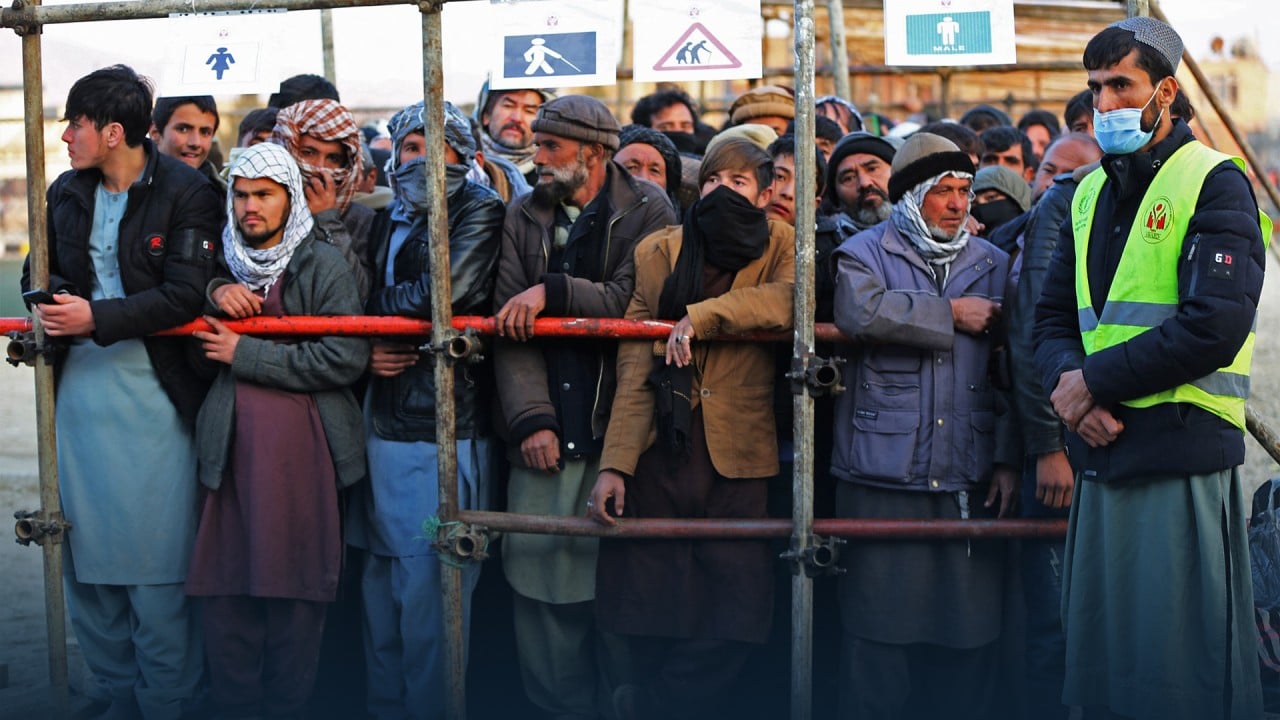
Taliban to stop Afghan women from visiting popular national park
- The Vice and Virtue Ministry says women have not been properly wearing the hijab, or Islamic headscarf, when visiting the popular Band-e-Amir park
- ‘Going sightseeing is not a must for women,’ a minister said, while Human Rights Watch said ‘step by step … the walls are closing in’
The Taliban will use security forces to stop women from visiting one of Afghanistan’s most popular national parks, according to information shared by a spokesman for the Vice and Virtue Ministry.
The ministry alleges that women have not been observing the proper way to wear the hijab, or Islamic headscarf, when going to Band-e-Amir in the central Bamiyan province.
This comes a week after the minister, Mohammad Khalid Hanafi, visited the province and told officials and religious clerics that women have not been adhering to the correct way of wearing the hijab, asking security personnel to stop women from visiting the tourist hotspot.
“Going sightseeing is not a must for women,” Hanafi said at the time.
Ministry spokesman Molvi Mohammad Sadiq Akif shared a report of Hanafi’s remarks late on Saturday, including the use of security forces, clerics and elders to carry out Hanafi’s order. A recording of the minister’s speech in Bamiyan, aligning with Akif’s report, was shared on social media.
Akif was not immediately available for comment on Sunday.
“Not content with depriving girls and women of education, employment, and free movement, the Taliban also want to take from them parks and sport and now even nature, as we see from this latest ban on women visiting Band-e-Amir,” said Heather Barr, the associate women’s rights director at Human Rights Watch.
“Step by step the walls are closing in on women as every home becomes a prison.”
In November the Taliban-led government barred women from using public spaces, including parks, saying that they were not wearing the hijab correctly or following gender segregation rules.
Since taking over the country in August 2021 after the withdrawal of US and Nato forces, they have imposed several restrictions targeting Afghan girls and women, including stopping girls from going to school beyond the sixth grade, and prohibiting Afghan women from jobs at local and non-governmental organisations while cracking down on media.

These harsh measures triggered fierce international outrage, including from Muslim-majority countries.
Band-e-Amir is a major tourist attraction in Bamiyan. It became the country’s first national park in 2009 and pulls in thousands of visitors every year.
It is a major source of income for locals and their sightseeing, restaurant, hotel and handicraft businesses.
Meanwhile, the United States has issued nearly 34,000 Special Immigration Visas for Afghans who have risked their lives working with different US agencies since President Joe Biden took office in 2021, embassy officials said.

US diplomats around the world have processed Afghan visa applications, according to the US embassy in Afghanistan, which now operates from Qatar instead of Kabul.
“We will not stop,” it said in a statement issued late Friday.
The US evacuated tens of thousands of Afghans during the chaotic withdrawal of US military forces from Afghanistan in August 2021.
Thousands of Afghans are desperately looking for ways to escape the turmoil, poverty and discrimination, hoping to eventually reach the US or another Western country.
Many Afghans are living in difficult conditions in neighbouring countries such as Iran or Pakistan while they wait for decisions on visa applications.
Figures released by the US State Department show that more than 152,000 Afghan nationals have applied for Special Immigration Visas.
Additional reporting by dpa


